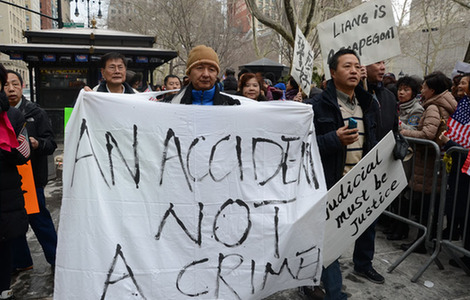Rules for relics
Updated: 2015-03-10 07:36
By Wang Kaihao
|
||||||||
China's State-owned museums are public institutions, which generally lack enterprising business models, and many existing management problems are attributed to the institutions' overwhelming dependence on government administration and aid, Song says.
"The private museum boom nationwide in the last decade brought unprecedented challenges and made us realize that people's demand for museums is diverse, and therefore the urgency to promulgate such a regulation," he says.
"It will upgrade management levels and will simultaneously provide the industry with professional guidance that was considered insufficient in China so far."
Though Song feels the new rules are good first steps, he says they have limitations.
For example, popular science institutions and military museums are not included in the regulation.
"The regulation focuses on museums exhibiting cultural relics, and does not pay equal attention to those of folklore, nature science and the fine arts, but a complete museum system should include a wider range," he adds.
In addition, it might be difficult to coordinate efforts of different government departments to implement the regulation because the cultural relics administration is not the only department responsible for museum management.
"Perhaps, a national museum law is still needed to solve such problems," Song says.

 Apple unveiled 1st wearable watch
Apple unveiled 1st wearable watch
 Children perform 'Ballad of Mulan' in NYC
Children perform 'Ballad of Mulan' in NYC
 Rally in New York supports indicted Chinese-American police officer
Rally in New York supports indicted Chinese-American police officer
 Traditional villages: Home of Chinese culture
Traditional villages: Home of Chinese culture
 Daily snapshots of 'two sessions' - March 8
Daily snapshots of 'two sessions' - March 8
 Brazilian soccer stars prosper in China
Brazilian soccer stars prosper in China
 Chinese FM gives press conference for NPC session
Chinese FM gives press conference for NPC session
 One Minute: 'Bizarre' TV scenes and subsidies for hiring women
One Minute: 'Bizarre' TV scenes and subsidies for hiring women
Most Viewed
Editor's Picks

|

|

|

|

|

|
Today's Top News
China, US should look forward with sincerity
China in TPP 'a good thing': ex-Rep
University of Virginia opens office in China
China to stricly regulate e-commerce industry
Shanghai remains expats' top choice
A different sort of Bush
Direct flight to link Nanjing, LA
China to speed up drafting anti-corruption law
US Weekly

|

|







